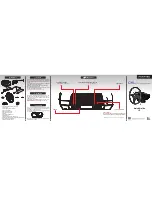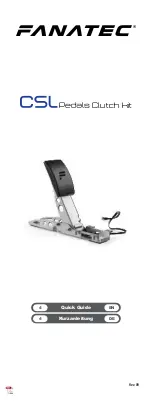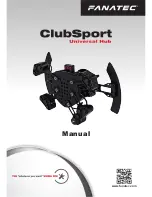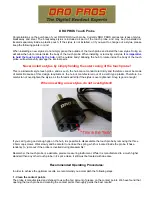
RII116-‐C-‐201204.docx Copyright© 2020 Essex Electronics, Inc. All Rights Reserved
Manual Override Bypass
The Manual Override push to exit timing may be adjusted from approximately half a second to sixty seconds. This function is
designed to be used if the microwave radar sensor becomes non-‐functional, to allow exiting through an emergency egress door.
This is internally configured as a “failsafe” function, the locking mechanism should also release when the power fails to the switch.
Manual override operates a second relay controlled by a timer circuit, that is normally energized, so that if power fails this relay
will activate the locking mechanism, (in fail secure), or release the locking mechanism, (in fail safe).
Mounting
HEWMO-‐1
is designed for narrow or mullion mount applications. For recessed installation, use template provided to mark
and remove material. For surface mount installation, an optional spacer ring is available.
HEWMO-‐2
is designed to mount to a standard U.S. Single Gang switchbox. An optional back box (BAK BOX-‐SGS) is available
for surface mount installation.
HEWMO-‐3
is designed to mount to a standard U.S. Double Gang switch box.
TYPICAL INSTALLATIONS
There are two sets of relay contacts that may be used, each of which is routed through the manual override. The normally closed
contacts, the white wire to the yellow wire, would be in series with a normally powered locking mechanism, such as a magnetic
door lock. This would also be in series with the controller applying locking power. The normally open contacts, the orange to the
blue wires, could be used to apply a “request to exit” or “REX” signal to the controller, which would then apply power to unlock.
Since both sets of contacts are not normally used at the same installation, the set that is not being used as described may be used
to indicate that the HEW has been activated to a control panel or security system.
Regulatory Compliance -‐ FCC
End Product Labeling
The next assembly should have instructions and a label that refers to the manufacturer FCC ID: UXS-‐IPM165 & Canada IC: 6902A-‐IPM165 for all
models of the Hand-‐E-‐Wave.
This device HEW has been tested and approved to be compliant with Part 15.245 of the FCC Rules and with RSS-‐210 Issue 7 of Industry
Canada. Operation is subject to the following conditions:
1.
This device may not cause harmful interferences, and
2.
This device must accept any interference received, including interference that may cause undesired operation.
This equipment has been tested and found to comply with the limits for a Class B digital device, pursuant to part 15 of the FCC Rules. These
limits are designed to provide reasonable protection against harmful interference in a residential installation. This equipment generates, uses
and can radiate radio frequency energy and, if not installed and used in accordance with the instructions, may cause harmful interference to
radio communications. However, there is no guarantee that interference will not occur in a particular installation. If this equipment does cause
harmful interference to radio or television reception, which can be determined by turning the equipment on and off, the user is encouraged to
correct the interference by one or more of the following measures:
•
Reorient or relocate the receiving antenna
•
Increase the separation between the equipment and receiver
•
Connect the equipment into an outlet on a circuit different from that to which the receiver is connected
•
Consult the dealer or and experienced radio/TV technician for help
























